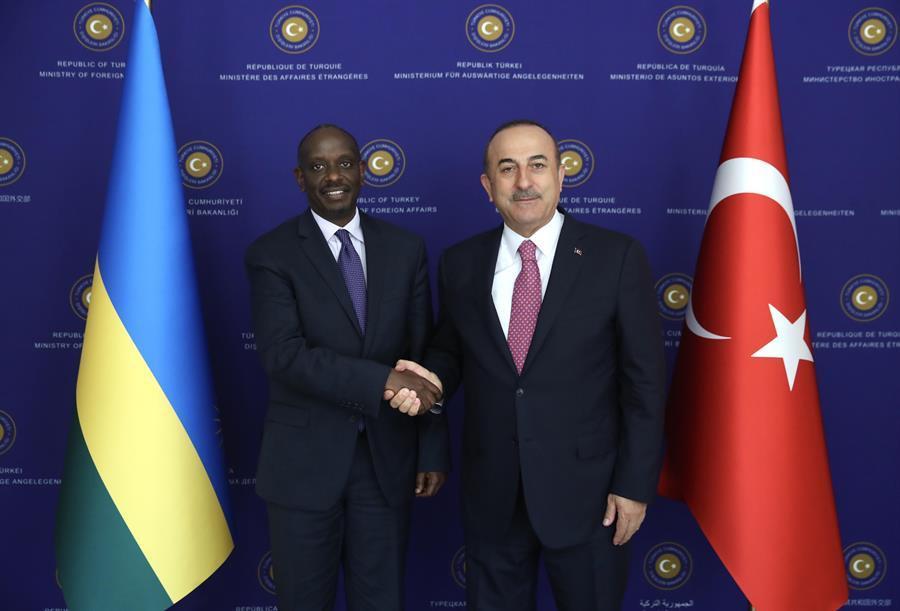Turkey defies US sanction threats over S-400 purchase
Sevil Erkuş- ANKARA

Foreign Minister Mevlüt Çavuşoğlu defied the United States’ sanction threats over Turkey’s purchase of Russian made S-400 missile defense systems, underlining that other international partners of the F-35 project have been annoyed by Washington’s decision to respond by halting training of Turkish pilots.
“No matter what sanctions decision, no matter which statement comes from the U.S., we have already bought the S-400s,” Çavuşoğlu told reporters at a joint press meeting with his Rwandese counterpart Dr. Richard Sezibera on June 24. “Now we are talking about when the S-400s will be delivered to Turkey. It is not possible for us to give up on the purchase of the S-400.”
Recalling recent U.S. steps to remove Turkey from the F-35 fighter jet program, Çavuşoğlu said the two issues are incompatible and other partners in the F-35 program do not support the U.S. steps.
“All decisions should be taken by consensus,” the minister said, reiterating that Turkey is also a partner in the program and has made large contributions. Turkey is one of nine nations led by the United States that carries out the Joint Strike Fighter (JSF) project along with the United Kingdom, Italy, Canada, Australia, the Netherlands, Denmark and Norway.
Former acting U.S. Secretary of Defense Patrick Shanahan has informed his Turkish counterpart that Turkey’s participation in the F-35 program will cease on July 31 if Turkey deploys Russian S-400s on its soils.
“These kinds of steps taken by the U.S. are not compatible with the partnership agreement or the law,” Çavuşoğlu said, adding that Washington failed to agree with any of Turkey’s proposals to resolve the dispute.
Çavuşoğlu also underlined that there is no guarantee of NATO protection in the event of an attack on Turkey, and the capacity of the alliance covers only 30 percent of Turkish air space at the moment. Furthermore, he said, NATO allies, especially the United States, Germany and the Netherlands; have withdrawn their Patriot missiles from along the Turkish border.
The top diplomat also thanked Italy and Spain for extending their air defense system deployment, adding that these extensions helped Turkey to defend its aerial domain.
“There is no guarantee that we can purchase Patriots tomorrow if we want to,” Çavuşoğlu said, elaborating on the ongoing talks with the United States for procurement of the American air defense system.
“We need to address our own needs. We would have liked to buy [air defense systems] from our allies,” he said, adding that U.S. President Donald Trump and Turkish President Recep Tayyip Erdoğan will discuss the matter.
“Trump understands the issue quite well, yet as always, different opinions rise from the U.S.,” he said.
Tensions between the two countries have escalated in recent months, with Turkey set to begin receiving the advanced S-400 Russian surface-to-air missile defense system, which Washington said will jeopardize Turkey’s role in the F-35 program and could trigger sanctions.
Following protracted efforts to purchase an air defense system from the United States with no success, Ankara decided in 2017 to purchase the Russian S-400.
U.S. officials advised Turkey to buy the U.S. Patriot missile system rather than the S-400s from Moscow, arguing the Russian system would be incompatible with NATO systems and expose the F-35 to possible Russian subterfuge.
Turkey, however, emphasized that the S-400 would not be integrated into NATO systems and would not pose a threat to the alliance. Turkey has urged the formation of a commission to clarify any technical issues, but the United States has failed to respond to its proposal.
















